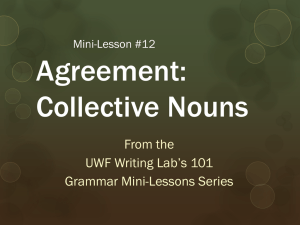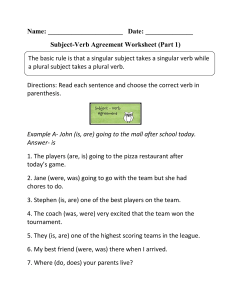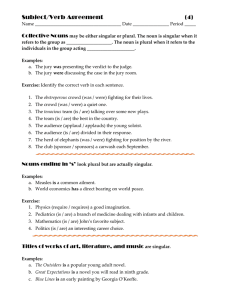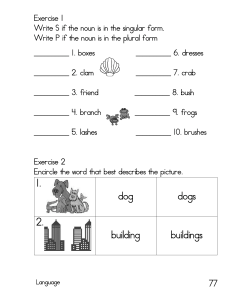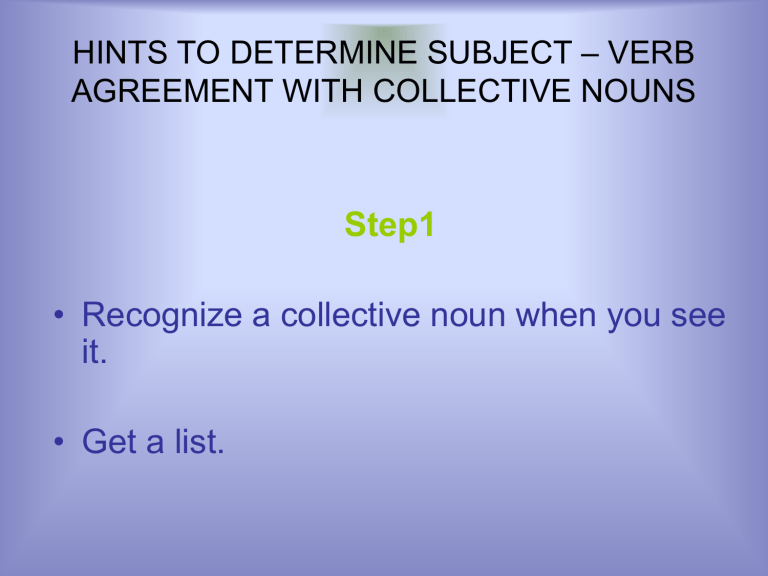
HINTS TO DETERMINE SUBJECT – VERB AGREEMENT WITH COLLECTIVE NOUNS Step1 • Recognize a collective noun when you see it. • Get a list. Step 2 • Analyze the noun. • If the group is acting as a unit the noun is singular; • if the group is acting individually it is plural. Step 3 • Use "and" to join two or more subjects to make the nouns singular; for example, • "Ham and cheese is my favorite lunch." Step 4 • Judge whether the compound subject is referring to one person or many people; for example, • "My teacher and coach is a great guy." Step 5 • See if the word "what" starts the sentence. • Clauses and phrases acting as the subject usually imply a singular verb, unless they start with the word "what." Step 6 • Learn the topics that are considered singular. Essays, lectures, musicals, novels, operas, plays, poems, quotations, sermons, slogans, themes and titles take a singular verb. • For example, "'Guys and Dolls' is performed at numerous high schools." • Names of books, magazines, newspapers and pamphlets also take a singular verb. Step 7 • Understand when expressions of distance, money, portions, quantities, sums, time and weights are singular and when they are plural. • If you are using the noun as a unit it will take a singular verb, but if it is indicating separate parts then it uses a plural verb. • Likewise, fractions such as one-half of, two-thirds of and expressions such as majority of, part of and percentage of take a singular verb if a singular noun follows "of" • They take a plural verb when a plural noun follows "of." Step 8 • Know when a company name is singular and when it is plural. • If the company is referred to as "it," it is singular. • If the company is referred to as "they" it is plural. Usually • if a company ends in corporation or company, it is singular. You have two ways that you can compose the sentence without causing an agreement error: • 1) insert the word members after the collective noun [jury members, committee members, board members], or • 2) use an entirely different word [players instead of team, students instead of class, soldiers instead of army]. • ©1997 - 2009 by Robin L. Simmons All Rights Reserved. • http://www.ehow.com/how_2123848_usecollective-nouns.html • http://www.ucgc.org/terms-forcollections.htm
